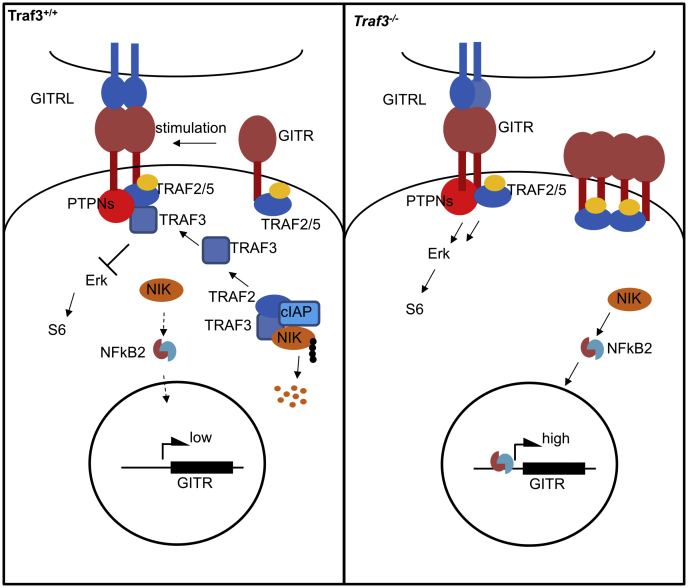Figure 8.
Model: TRAF3 suppresses GITR expression and signaling in T cells. GITR transcription is stringently regulated by activity of NFκB2. In normal T cells (left panel), the major upstream kinase for activation of NFκB2, NIK is constitutively polyubiquitinated (represented as chain of black dots attached to NIK) and targeted for degradation by an E3 ubiquitination complex containing TRAF2, TRAF3, and cIAP. Engagement of GITR with GITRL leads to recruitment of TRAF3 and disassembly of the TRAF2/TRAF3/cIAP E3 complex, which releases NIK and activates downstream NFκB2. In addition, phosphatases PTPN2 and PTPN22 attenuate the signaling strength of the GITR complex independent of TRAF3. Negative regulation of GITR signaling by TRAF3 may also involve competition with TRAF2 and TRAF5 (yellow and blue ovals), both of which can promote GITR signaling (59). In the absence of TRAF3 (right panel), NFκB2 is constitutively active and upregulates GITR transcription. Increased levels of the GITR receptor and lack of TRAF3 regulation of the GITR signaling cascade lead to elevated GITR signaling in TRAF3-deficient T cells.

